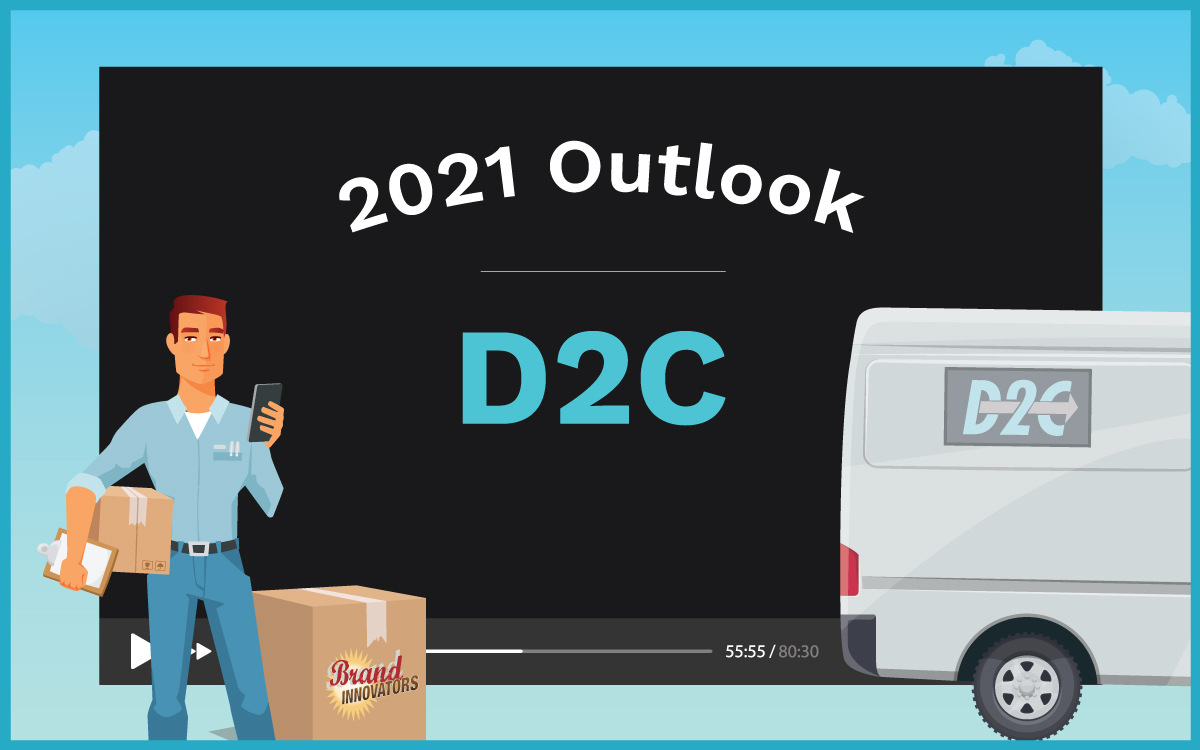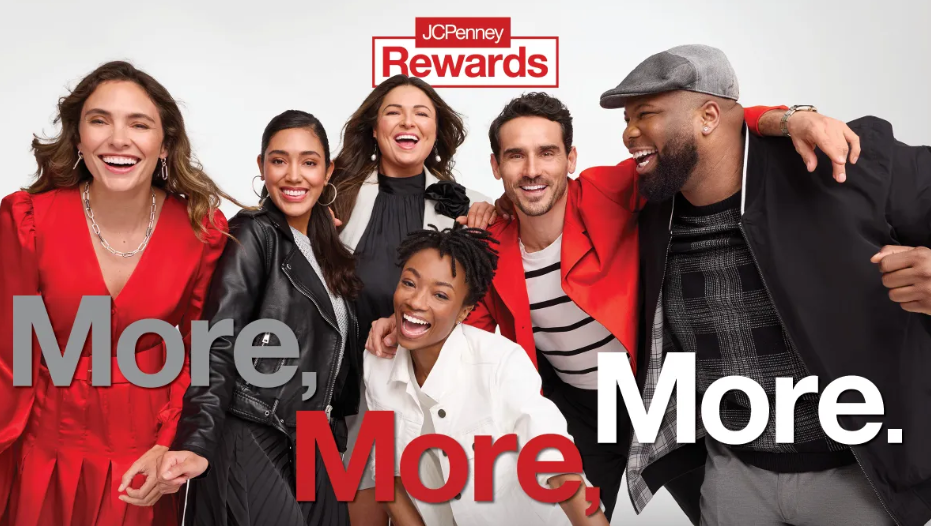In the fifth installment of our new 2021 Outlook Series, Brand Innovators talks to direct-to-consumer (DTC) CMOs and marketing leaders for insights into what to expect next year, and how the category will grow as consumers seek smooth digital-first shopping experiences.
Digitally native brands that were created to cut out middlemen and connect directly with consumers online, have been growing significantly over the last few years.
With the digital demands of pandemic life, many of these companies were prepared to help consumers deal with new ways of shopping and this digital adoption should help these challenger brands going into 2021.
“DTC will only become more important with customers now expecting to get what they need, when they need it,” says Kelli Lane, CMO of DTC pharma site Genexa. “The brands that create meaningful, frictionless experiences for their customers are going to win. DTC doesn’t mean you can slack on creativity and innovation, it actually makes it even more imperative since customers are using their wallets as their voices more than ever. Brands need to stop purpose washing. Those that live their values out loud will win long term.”
DTC companies have been growing over the last few years, offering consumers a quality alternative to traditional brands with the convenience of shopping online. Between 2016 and 2019, DTC ecommerce grew at 3-6x the rate of traditional e-commerce brands, per eMarketer. DTC ecommerce sales accounted for $14.28 billion in revenues in the US alone in 2019 and is expected to bring in $17.75 billion in 2020, a 24.3% growth rate year-over-year.
The pandemic has helped the sector in some ways, as many of these companies were built with a digital-first experience in mind, an approach that has served consumers and brands well in 2020. As many traditional brands scramble to overall their digital programs, DTC brands are entering 2021 with digital momentum.
Zac Brandenberg, CEO of DTC beverage company Drinks.com, admits that issuing predictions “has been quite a dangerous proposition this year.” Still he expects to “see continued acceleration of demand online.”
“There are so many proof points: the number of consumers who have adopted buying groceries online, be it click-and-collect or using Instacart are extraordinary,” he says. “It is unparalleled in the speed at which that change is happening. It ties of course to what happened with COVID. Prior to this event, it was always thought about in marketing circles that if you are going to change a consumers’ behavior or get in the middle of their existing behaviors that would happen during three events in their lives – when they move, when they get married, or when they have a child. Those are the three primary events when you can see changes in behavior, changes in brand loyalty. Now you have a fourth: pandemic.”
“You see a lot of shifts in what consumers are going to buy and how they are going to engage and that has led to a new baseline of behavior online and that is going to continue,” continues Brandenberg. “We think it is going to accelerate more because you have a larger base and awareness and as your base grows, you have all of the virality components. If I tried it, I am going to tell my neighbor to try it. As your audience grows, the ability and likelihood of magnifying that audience continues to increase.”
Calvin Lammers, VP of ecommerce at Health Ade, thinks 2021 is going to be a milestone year for consumable brands and DTC, in particular food and beverage.
“Brands that had an existing DTC site, even if it wasn’t a focus or priority for the company, likely saw massive organic growth in 2020,” Lammers says. “In 2021 though, more and more brands will continue to launch DTC stores of their own, if they hadn’t already, and the marketplace will become more and more competitive as brands will need to be hyper effective with their marketing efforts in order to win over consumers. To win, they’ll need to ensure a highly competitive and engaging shopping experience with next day or same day delivery options and multiple order methods.”
Expect DTCs that did well in 2020 to expand and invest in 2021, such as DTC grocer Foxtrot. “2020 has greatly impacted and changed consumer purchasing habits,” says Carla Dunhham, CMO of Foxtrot. “In the convenience store and grocery categories, we’ve seen and will continue to see through next year, an increase in consumers purchasing private-label products as a cost-effective and accessible option. In Q1 2020 alone, the U.S. saw a nearly 15% increase in private brand sales compared to the first quarter of 2019.”
“At Foxtrot, our private-label portfolio is something we’re looking to expand in 2021 – not only as a value-based opportunity but also as an opportunity to bring our customers high quality, trend-driven products with a sense of fun,” Dunham continues. “We’re always listening to our guests to determine what they need and want most, and then working to deliver them a product that not only meets those demands but also delights – from prepared foods and easy snacks to giftable items.”
Even as the DTC category grows, it still only represents 2.6% of the US ecommerce market. One of the challenges for DTC brands is establishing themselves among better known legacy brands. While some players have broken through, others have issues disrupting their category at a time when many are turning to classic brands as a comfort during uncertain times.
“With all the uncertainty that 2020 has created, 2021 will require brands to meet the consumer where they are,” says Todd Meleney, VP of marketing at athletic apparel company Nobull. “Not everyone’s reality has been the same recently, which means marketing messaging can’t be either. At NOBULL, we’re using customer insights and behaviors to provide a more personalized brand experience. DTC brands need to be transparent and honest with their audience to retain and build trust. We are working to do that through less mass messaging and more personal touches and product recommendations.”
In 2021, expect these brands to expand their marketing techniques to break through with more traditional storytelling approaches, rather than solely relying on performance-based tactics.
“2021 will be the year of truly connecting content with commerce for DTC brands to shift from being disruptors to solidifying themselves as mainstream competition among retail giants,” Rebecca Traverzo, VP of Marketing at DTC underwear site Third Love. “In order to achieve this status, DTC brands will swing the pendulum from solely performance-driven tactics to more brand storytelling and influence.”
These storytelling approaches should be adapted to the times and connect to consumers on how their behaviors are adapting.
”I’d have a much clearer view on the outlook after Tuesday, but in 2021 some of the cultural shifts that were catalyzed by COVID-19 will get more permanently rooted in our behavior,” says Ryan Eckel, Brand President at Tracksmith. “The last several months have reoriented our priorities, sometimes in life changing ways, and many people will be completely rewired as a result; even if a vaccine helps bring things back to normal. For example, I expect that the high participation numbers in outdoor and fitness activities will continue, as people have a renewed focus on health and time outside the house. Similarly, people will also place a lot of enthusiasm into things that were taken away from us this year, like in-person events, when the time is right for those to return.”
No matter what business the DTC is in, next year should also be a renewal of brand purpose.
“Every year that passes, brands are forced to get clearer on who they are and why they are in business,” says Jenna Tanenbaum, Head of Growth Marketing at toilet paper brand Who Gives A Crap. “2021 is no different. If anything it’s accelerating this phenomena even more. The ability to launch a new company and advertise on digital channels has never been easier. The DTC brands that will win in 2021 will have a great product and a clear, authentic mission. DTC brands must provide a clear value above and beyond the products they sell to their customers.”




